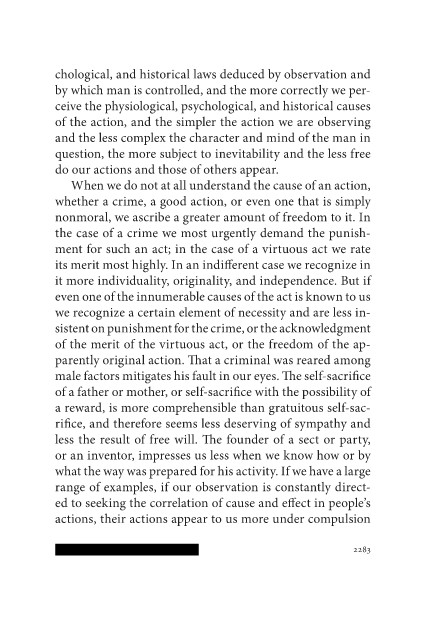Page 2283 - war-and-peace
P. 2283
chological, and historical laws deduced by observation and
by which man is controlled, and the more correctly we per-
ceive the physiological, psychological, and historical causes
of the action, and the simpler the action we are observing
and the less complex the character and mind of the man in
question, the more subject to inevitability and the less free
do our actions and those of others appear.
When we do not at all understand the cause of an action,
whether a crime, a good action, or even one that is simply
nonmoral, we ascribe a greater amount of freedom to it. In
the case of a crime we most urgently demand the punish-
ment for such an act; in the case of a virtuous act we rate
its merit most highly. In an indifferent case we recognize in
it more individuality, originality, and independence. But if
even one of the innumerable causes of the act is known to us
we recognize a certain element of necessity and are less in-
sistent on punishment for the crime, or the acknowledgment
of the merit of the virtuous act, or the freedom of the ap-
parently original action. That a criminal was reared among
male factors mitigates his fault in our eyes. The self-sacrifice
of a father or mother, or self-sacrifice with the possibility of
a reward, is more comprehensible than gratuitous self-sac-
rifice, and therefore seems less deserving of sympathy and
less the result of free will. The founder of a sect or party,
or an inventor, impresses us less when we know how or by
what the way was prepared for his activity. If we have a large
range of examples, if our observation is constantly direct-
ed to seeking the correlation of cause and effect in people’s
actions, their actions appear to us more under compulsion
2283

